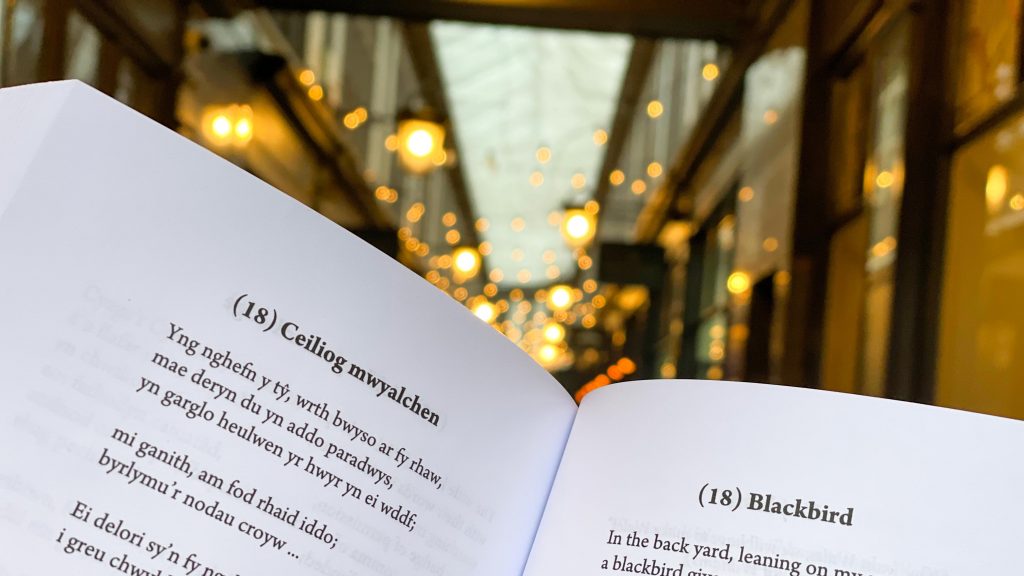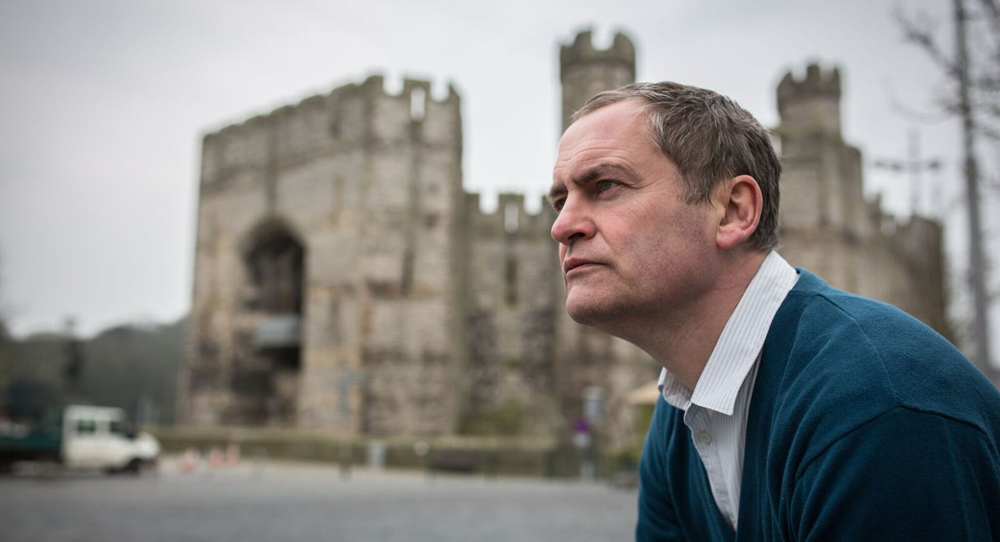We hear from the current National poet of Wales, a poet recovering from cancer and a female poet about how poetry has transformed their lives for the better.

Ifor really loves poetry. Writing a poem for him is a bit like painting. “I can always change things. I can add a bit more. And I can decide where to stop. A point will come where either you have to decide this really isn’t working, If I add more, it might make it worse.” The process of creating for Ifor is enjoying finding new ways of seeing things or describing them. “it’s a rewarding exercise. You feel that you have managed to say something that is worth saying and say it in a new way,” he said.
Ifor ap Glyn is currently the National Poet of Wales. The poet is tasked with promoting Welsh poetry and bringing it to a worldwide audience. He thinks that it’s an honour to accept the role.
Ifor says, “The National Poet is expected to write at least five commissioned poems each year. The other dimension of the job is to act as some kind of cultural ambassador, in general for Wales, attending events. These might be in Wales or overseas.”

While poetry was like painting for Ifor, it saved Jamie’s life. Jamie Woods is a short-story writer and poet, who was diagnosed with a rare form of blood cancer in 2019. Now in remission, Jamie has found writing to be a therapeutic way of coming to terms with his illness. One of the poems he wrote during this period – ‘Ring the Bell’ – was commended with the Hippocrates International Prize for Poetry and Medicine in 2021.
“Each word is carrying much more power, much more meaning. That’s what I like about poetry,” says Jamie, whose poems are mostly about cancer and dealing with mental health.
“I have anxiety, depression, and post-traumatic stress disorder. I had cancer and to be able to verbalise the inner turmoil that was going on in my head trying to deal with these things just helped me get those horrible thoughts out of my head and understand them. Writing poetry has helped me, it’s helped me massively,” Jamie says.
Jamie doesn’t necessarily write poems to get them published. He enjoys the feeling of creating.
“I find that the actual process of playing with these words, constructing verses, making sure that I’ve got a complete story in a poem has helped me process each bit of trauma,” says Jamie.

Louisa Guise, who is a Cardiff writer, has the same feeling about the words used in poetry. She says the rules of poetry are different from regular English grammar and much freer. “I think poetry allows you to express yourself in a different way, where you can really just say how you feel, in a way in a way that you can’t do when you’re just writing and sticking to the academic rules,” she says.
Literature Wales is calling for the nomination of the next National Poet of Wales to advocate and share poetry’s impact with the world. Ifor believes that being involved with the promotion of poetry, and getting them interested in it is certainly an important part of the National Poet project.
Jamie reckons that poetry and cultural organisations can do some educational activities, like bringing writers to schools, which can really help school children interact with poetry.
From Louisa’s perspective, school is a good place to start getting familiar with poetry. “When I was 10, Gillian Clarke came to my school to do a poetry workshop with my class. She really brought poetry to life and certainly inspired me to write more. I think getting young people involved is the key.”
Louisa also believes that it is important to showcase different types of poems because she believes that people are put off by poems due to their traditional style. “Poetry is much more varied than that,” says Louisa.
Ifor’s only regret from his time as the national poet is not being able to take poetry into even more different areas of the community. He looks forward to seeing how his successor will find new ways to engage with a wider audience.
